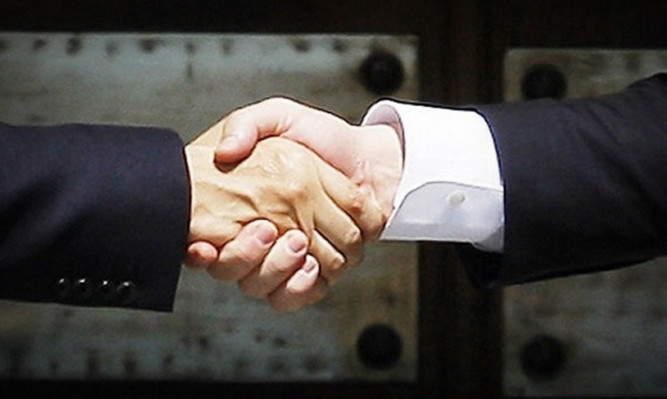Scotland should use its extensive new and existing economic powers to become the easiest place in the world to do business, according to a think-tank.
The UK is ranked eighth in the World Bank’s league table of countries where it is easiest to do business.
Scotland is not ranked separately but think-tank Reform Scotland said it should aim to fulfil the criteria for first place.
Chairman Ben Thomson, who is stepping down after seven years, has set a parting challenge to the Scottish Parliament to use its position as one of the most powerful devolved administrations on Earth to create a world-leading business environment.
His final report calls for Air Passenger Duty to be scrapped immediately upon its devolution to the Scottish Parliament as part of the upcoming Scotland Bill.
An Edinburgh Airport study has estimated a £200 million economic benefit from a 50% reduction in the tax, and Mr Thomson believes that its abolition will be of even greater benefit and improve the international reach of Scotland’s businesses.
He has also called for business rates to be devolved directly to councils to meet local requirements, the abolition of fuel duty and vehicle excise duty, full autonomy for colleges and a reform of quangos.
It has also called for the devolution of corporation tax, something the SNP has long argued for which has been resisted by the UK Government.
The planning system should be reformed to incentivise local authorities, childcare support should be distributed by a voucher scheme and Government contractors should end their “culture of late payment”, Mr Thomson said.
Business should also be provided with a “one-stop-shop” for Government advice, and the Government should also make it easier to invest in small businesses, he added.
Mr Thomson said: “There are three key factors which should power long-term economic growth – investment in infrastructure, a focus on education and low taxes.
“However, in the current financial climate we have to accept that these key factors can be difficult to alter substantially. With that in mind, we therefore have to look at other practical measures we can take to create a healthy business environment and squeeze out as much economic growth as possible.
“Most of our 11 recommendations involve powers which are either already devolved to the Scottish Parliament, or soon will be.
“Furthermore, Scotland is in a hugely advantageous position in that it is small enough to implement these policies quickly in order to create the attractive business environment which we need to create jobs and prosperity while also generating the money to finance schools, roads and other public spending.
“The World Bank ranks the UK eight in its ‘Ease of Doing Business’ table. It would be good to think that if Scotland was ranked separately, it could be number one. That should be our aim.”
